Tag Archive: Permaculture
August 29, 2017
“For a seed to achieve its greatest expression, it must come completely undone. The shell cracks, its insides come out, and everything changes. To someone who doesn’t understand growth, it would look like complete destruction.”
In the late spring, we had an unseasonably sticky stretch of days where I live, and after school one day, my wife and I took our girls to a local swim hole to cool down. As we eased into the cold water, one of our seven-year-old twins clutched desperately to my torso, not yet willing to put more than a toe or foot in. As the sun beat down, I began to feel both the weight of her body and the ebb of my patience, and I managed to negotiate her to a standing position in water that came to her waist. She continued to clutch my arm vice-like with both of her hands.
After another few minutes it was definitely time for me to go under water. But Maddie was unwilling to release me. I continued to encourage her to let go first, to get her head and shoulders wet. Initially totally reluctant, she got to a point where she was in just up to her neck but was still anxiously squeezing my hand. We did a bit of a dance for a few minutes where she would get to the end of my finger tips with her right hand, seemingly ready to take the plunge, and then the same part-anticipatory part-terrorized expression came to her face and she was back against me.
I kept coaxing her, and then let her know that whether she let go or not, I was going under, and if she was still holding on to me, that she would be doing the same. “Okay, okay!” she yelled, stamping her feet and once again got to the tips of my fingers while breathing rapidly. And this time … she let go. She pushed off and immersed her entire body in the water. She came up shrieking but with a big smile on her face, a bit shocked but also more at home in the water, moving around quite gracefully, actually. She splashed me and laughed and then I dived in. A few minutes later she was swimming along next to me.
Read More
August 30, 2016
“A good solution solves more than one problem, and it does not make new problems.”
– Wendell Berry

An essay that I return to now and then, including over these past summer months, is Wendell Berry‘s “Solving for Pattern.” Published in 1981, the piece essentially considers systemic approaches to more “sustainable “agriculture, though the concept alluded to in the title has wider application. The phrase “solving for pattern” is an invitation to take a larger and longer view of “problem-solving,” to think about interventions that serve a bigger picture in more sustained and multiply beneficial ways.
Solving for pattern, according to Berry, runs counter to reductionist and mechanical solutions, which lend themselves to more predictable and relatively contained situations. When reductionist solutions are applied to more complex and systemic situations, they are more prone to failure and to exacerbating negative aspects. Real-life examples include:
Read More
July 15, 2015
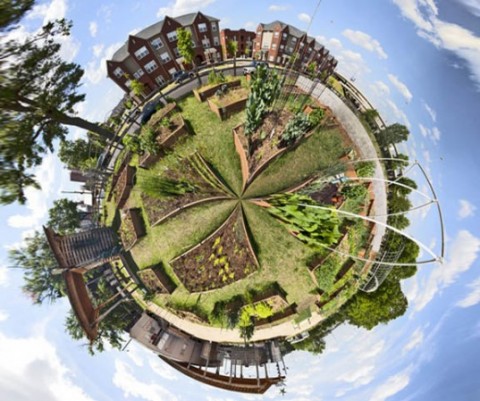
I posted the following about five years ago on this site, and have been actively thinking about and experimenting with its core lessons ever since. I have only become more compelled by the need to bring a living systems orientation to work for social change. Curious to hear reactions and what you are already doing to apply insights from and living systems.
Part 1
Last week I was in the presence of a master. For more than 25 years, Lauren Chase-Rowell has skillfully and intuitively cultivated the land around her house in Nottingham, NH to the point that it exists in great harmony with the beautiful farm house, people and fauna occupying that space. Lauren is an ecological landscaper, organic farmer, and permaculture design teacher. Her home, Dalton’s Pasture Farm, is a vibrant classroom and testament to the possibility of practicing “earth-centered living.” Read More
June 11, 2015
“One of the most universal numbing strategies is what I call ‘crazy-busy.'”
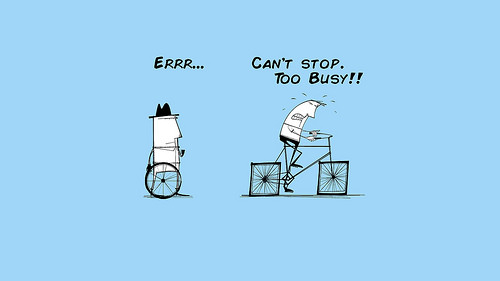
Image from Alan O’Rourke
My friend Adam Pattantyus recently reminded me of the concept of “active laziness”, attributed specifically to the writings of Sogyal Rinpoche. This reminder came at a very opportune moment. It is no secret that there is, at least in a number of circles in which we at IISC operate, a burgeoning culture of busy-ness. Many people seem increasingly pressed for time, and move between the temporal equivalent of sound bites throughout their days. The ensuing “frenzy” and exhaustion, while perhaps seen as necessary (or by some as a status symbol), is also being called out for its dysfunctional nature, including how it detracts from efforts to create positive and lasting social change. This is what Rinpoche calls “active laziness,” the compulsive cramming of our lives with activity that leaves no time to confront “real issues.” Read More
January 13, 2015
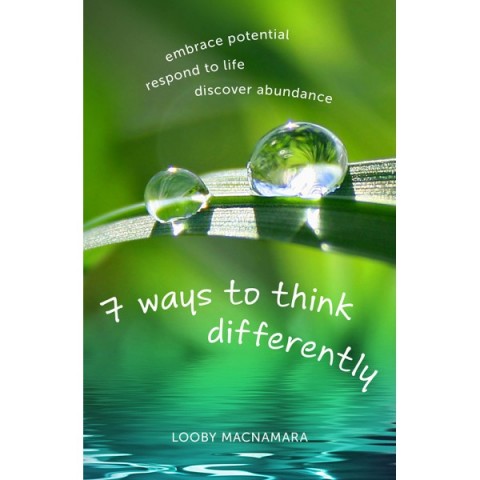
About 20 years ago I was introduced to the field of ecological design called permaculture, not in any great depth mind you, but from what I learned at the time, I was struck by how refreshing, sensible, and vital the practitioners’ perspective and approach were. Since then, and especially in recent years, interest in permaculture seems to have significantly grown (including my own) and its principles stretched beyond sustainable agriculture to human communities. Looby MacNamara is one of the teachers and practitioners who is helping with the more widespread application of permaculture principles. I just finished reading her short book, 7 Ways to Think Differently, which I recommend. In it she unites different ways of thinking (such as systems thinking and solutions thinking) with the underlying philosophical and methodological elements of “regenerative design.”
For me, one particularly fertile area is “abundance thinking.” I have to offer a bit of a pre-qualification that the word “abundance” can be used in certain contexts that I find off-putting, especially when there is little demonstrated understanding of existing structural inequities in society. That said, I think that “leading with abundance” as a mental exercise can provide valuable insights and approaches to social change. Here are a few thoughts, and I invite additions, reactions and push back: Read More
March 26, 2014

Over the last few weeks I have fielded a number of calls from people who are interested in figuring out how to develop different kinds of networks. I’m always eager to have these conversations, precisely because there is no single right answer, and it really comes down to a process of discovery and experimentation based on the unique nature of the network and system in question. That said, I do like to ask people the question, “What are you doing to feed your network?” Read More
November 20, 2013
“The major problems of the world are the result of the difference between the way nature works and the way people think.”
— Gregory Bateson

|Photo by amazon2008|http://www.flickr.com/photos/21654792@N03/3745280688/in/photolist-6GXxsY-6HCRqv-6L93Kt-6LFLKG-6MN2EA-6MZAwG-6NmnMj-6R9T78-6UuYYo-6VM6LM-6Wp5Qp-6ZcWpt-6ZHMrr-77FoRY-791JEy-79bwHB-7ax4Yo-7by5uN-7eRtnf-7jDnw3-7ohMBM-7qTm6G-9udNCU-bm9Sb8-asJWuq-fKs8H2-7Ayggf-9FUTKz-a5RCkJ-9rzSZ7-dZBjPo-8Hp3rc-bp5GBv-dwmDwx-djnQfa-dWAW1D-8KBQLy-8UdB66-8GFZ2z-7XBigb-8F2Gu4-7ZAMyi-87fnWU-8hZvM3-86ygbJ-81AMAg-9cYH2z-8eHptW-ei6RfC-hbUHL7-bDixAg|
A couple of weeks ago I had the pleasure of meeting Joel Glanzberg. I had been hearing about Joel and his work from numerous trusted colleagues, including Bill Reed of Regenesis Group and Ginny McGinn of Center for Whole Communities. Joel describes himself as a builder, farmer, teacher, writer, storyteller, naturalist, and permaculturalist. And I would add to that, living systems thinker. Joel has cultivated a practice of seeing and working with patterns of life’s processes, and helps others to do this, for the sake of creating healthier and more whole communities of different kinds.
I was especially interested to hear more from Joel about some of the living systems principles that guide his work, and to think about how these apply to what we at IISC do around network development for social change and focusing on networks as human environments. What appears in quotes and italics below is pulled directly from Joel’s website; the comments in regular text are my own:
Read More
April 3, 2013
“Structure is purpose expressed through design.”
– Marjorie Kelly, Owning Our Future
Detroit Voices: A Community Calls Out for Change from Phase 4 Media on Vimeo.
The new food movement, which is really several related but distinct movements, is a beacon of hope in this country. You can find evidence of this in many diverse settings, from Flint, Michigan to Northeast Iowa to northern Vermont to Oakland, California. While there are important distinctions in terms of emphasis and core players, one cross-cutting theme appears to be that we must create new structures to better nourish ourselves (calorically, economically, socially) through policy change, different land use patterns, new infrastructure, stronger relationships with ecosystems, new enterprises, and community building. From the growing number of food policy councils, to alternative financing mechanisms, practices like permaculture and agroforestry, and more intentional network building, people are setting the stage for some significant societal shifts. Read More
January 12, 2012
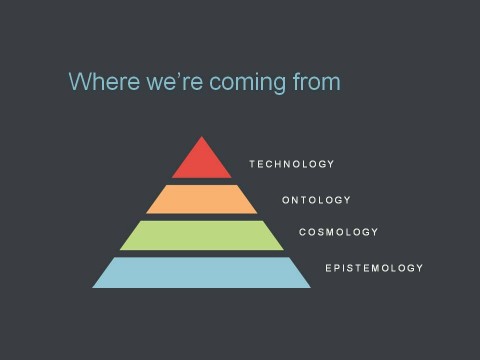
Next Tuesday, my colleague Gibran Rivera and I are excited to lead a webinar hosted by our friends at the Leadership Learning Community called “If You Till It They Will Come: Nurturing Collective Leadership.” The above slide is a bit of a sneak peak, and certainly one of the headier, nonetheless important, elements we will cover. The idea behind this graphic comes from the work of Carol Sanford, who has highlighted the fact that our leadership and change methodologies are always grounded in an underlying belief system about what we hold to be true about the world and humanity. Not being aware of or transparent about this can get us into difficulty when we are mixing and matching techniques/methods that may contradict one another, or when we are not operating from the same system of beliefs as others. So here is how we are tracing the roots of our approach to cultivating collective leadership for social change: Read More
May 12, 2011

|Photo by Kelly Schott|http://www.flickr.com/photos/so_wrong_its_kelly/4386155115|
A couple of weeks ago I was an enthusiastic participant in our sister organization Interaction Associate’s most recent offering in their LeaderLens webinar series. The featured presenter was Erik Gregory, a specialist in positive psychology. With roots in the theories and practices of Abraham Maslow, Carl Rogers, and Erich Fromm, positive psychology focuses on the study of human strength and virtue, rather than pathology. This includes looking at what explains resiliency, courage, optimism, and hope, even in the most daunting of circumstances. Read More
August 6, 2010
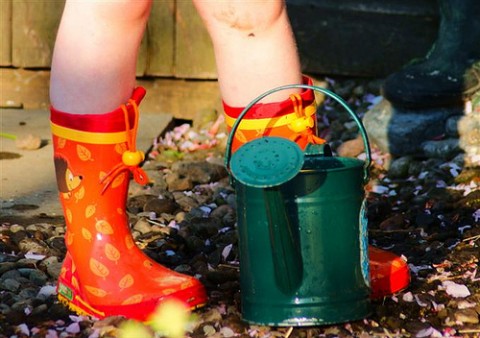
|Photo by sarniebill1|http://www.flickr.com/photos/sarniebill/4723746702|
Picking up from where I left off yesterday, I want to share some additional insights gleaned from my tour of Lauren Chase-Rowell’s permaculture garden and land. Something else that struck me was when Lauren said that beyond her training and intuition as a master gardener, “attitude is everything.” Illustrating this statement with stories it became clear that while she is incredibly skilled in her craft, Lauren’s psychological and emotional approach take it all to another level. In essence, permaculture starts with your self.
Channeling Lauren, I offer these three attitudinal guidelines for your consideration and application to your social change/leadership efforts, especially those geared towards leveraging the potential of systems and collective intelligence: Read More
August 5, 2010
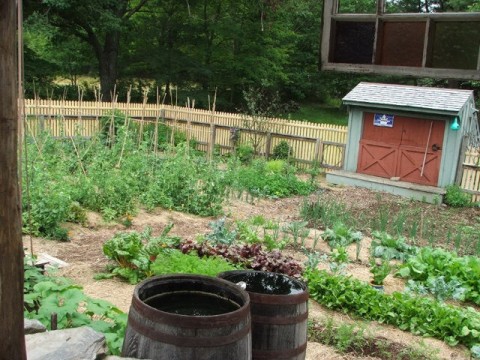
Last week I was in the presence of a master. For more than 25 years, Lauren Chase-Rowell has skillfully and intuitively cultivated the land around her house in Nottingham, NH to the point that it exists in great harmony with the beautiful farm house, people and fauna occupying that space. Lauren is an ecological landscaper, organic farmer, and permaculture design teacher. Her home, Dalton’s Pasture Farm (not pictured above), is a vibrant classroom and testament to the possibility of practicing earth-centered living.
Read More










